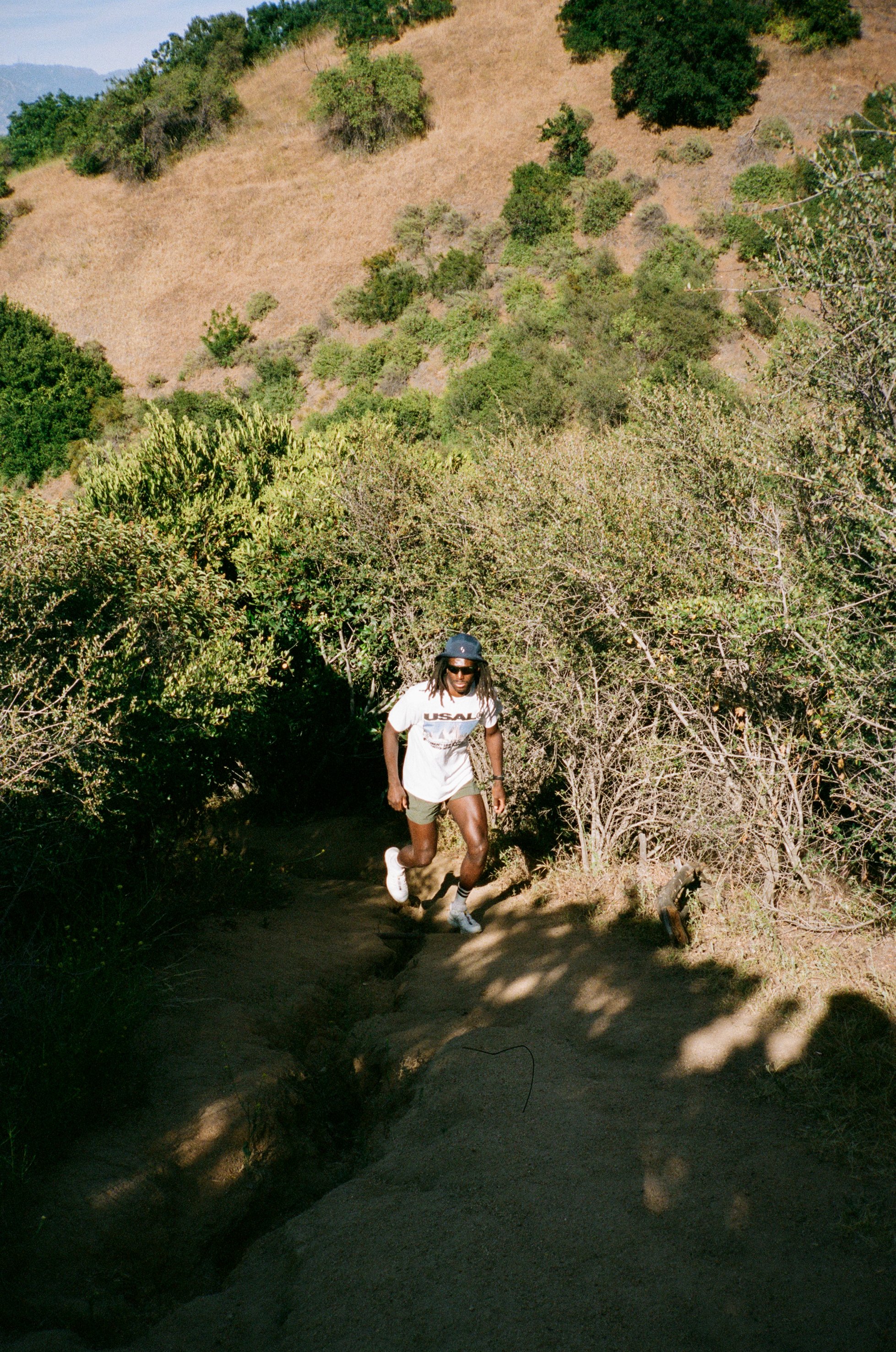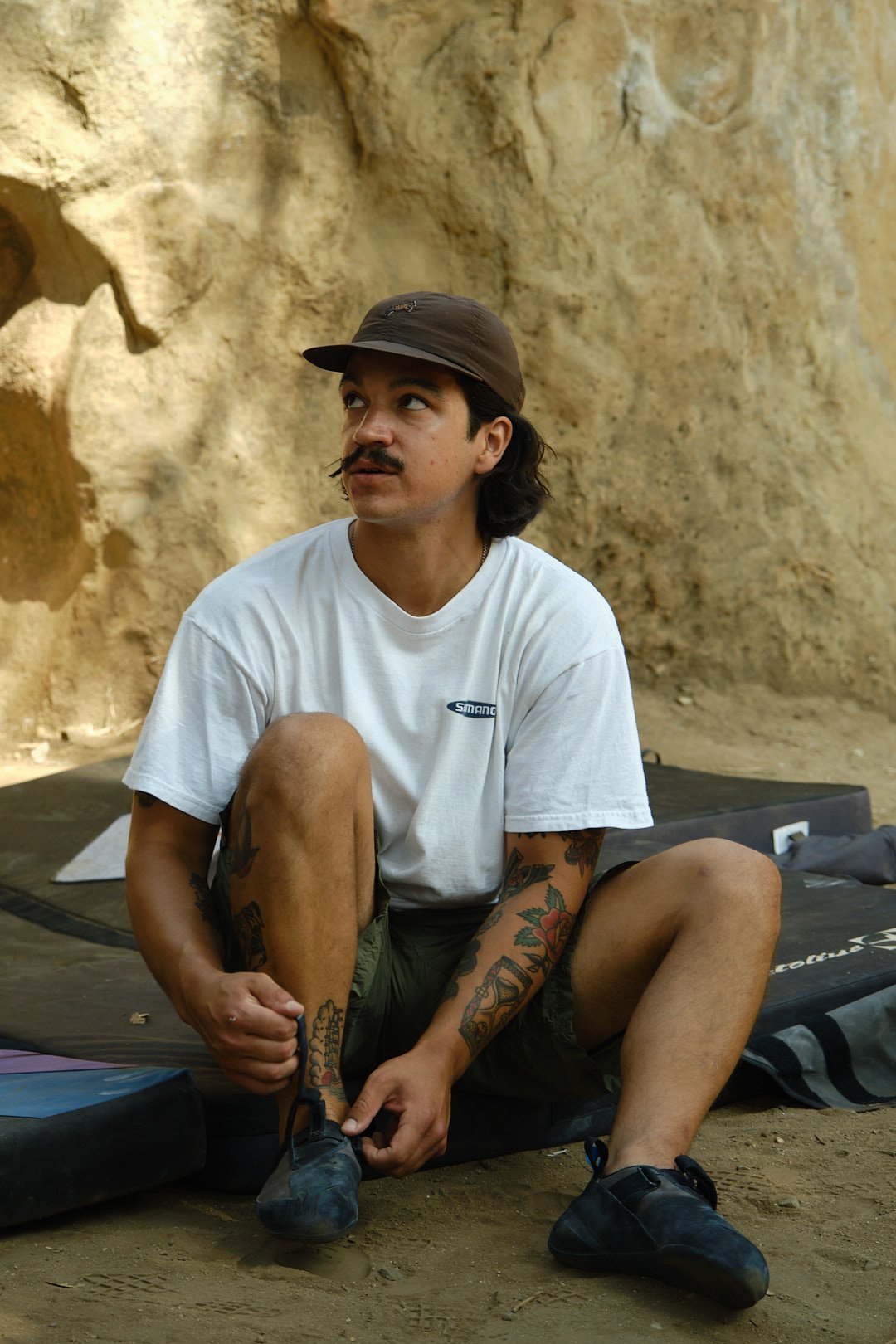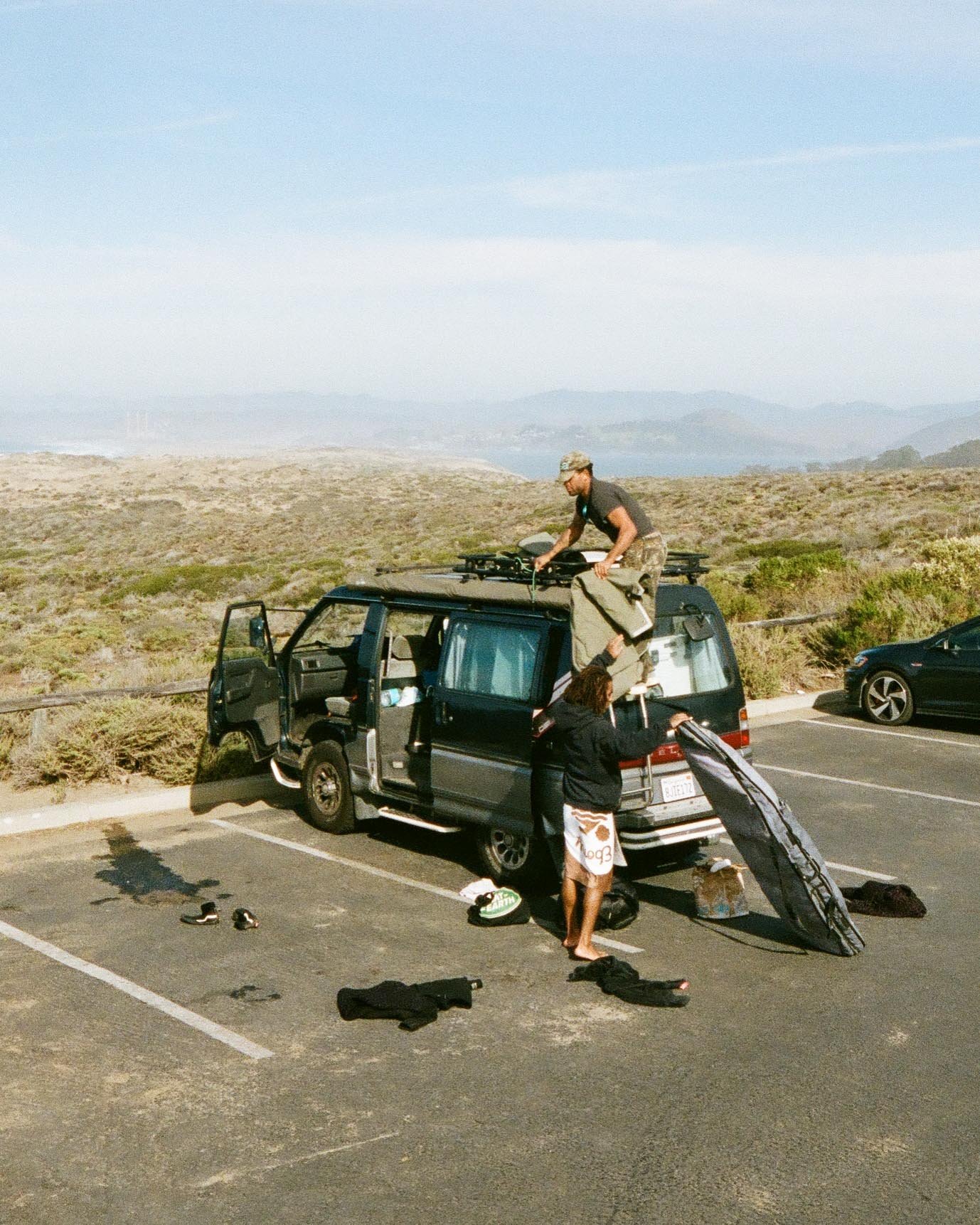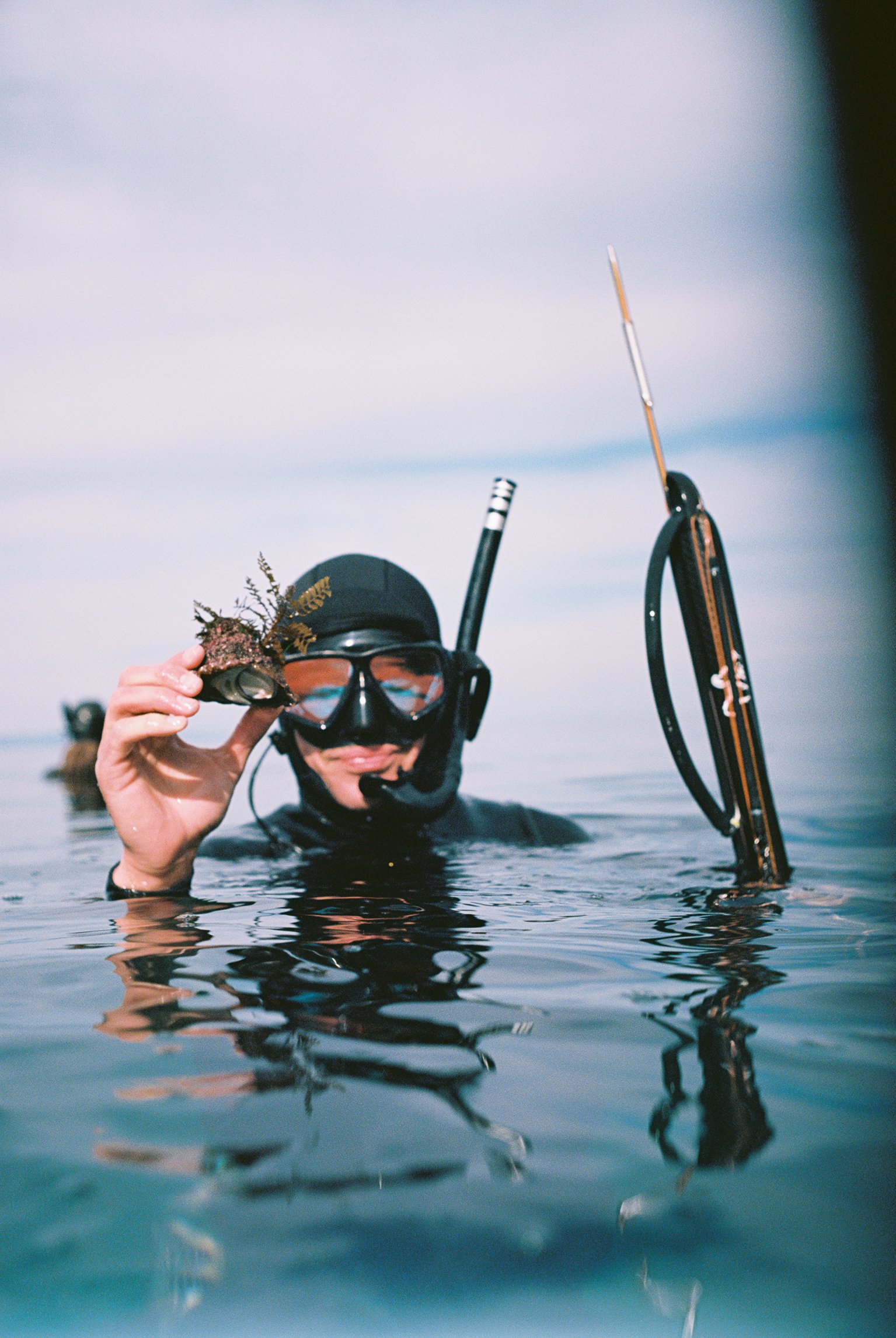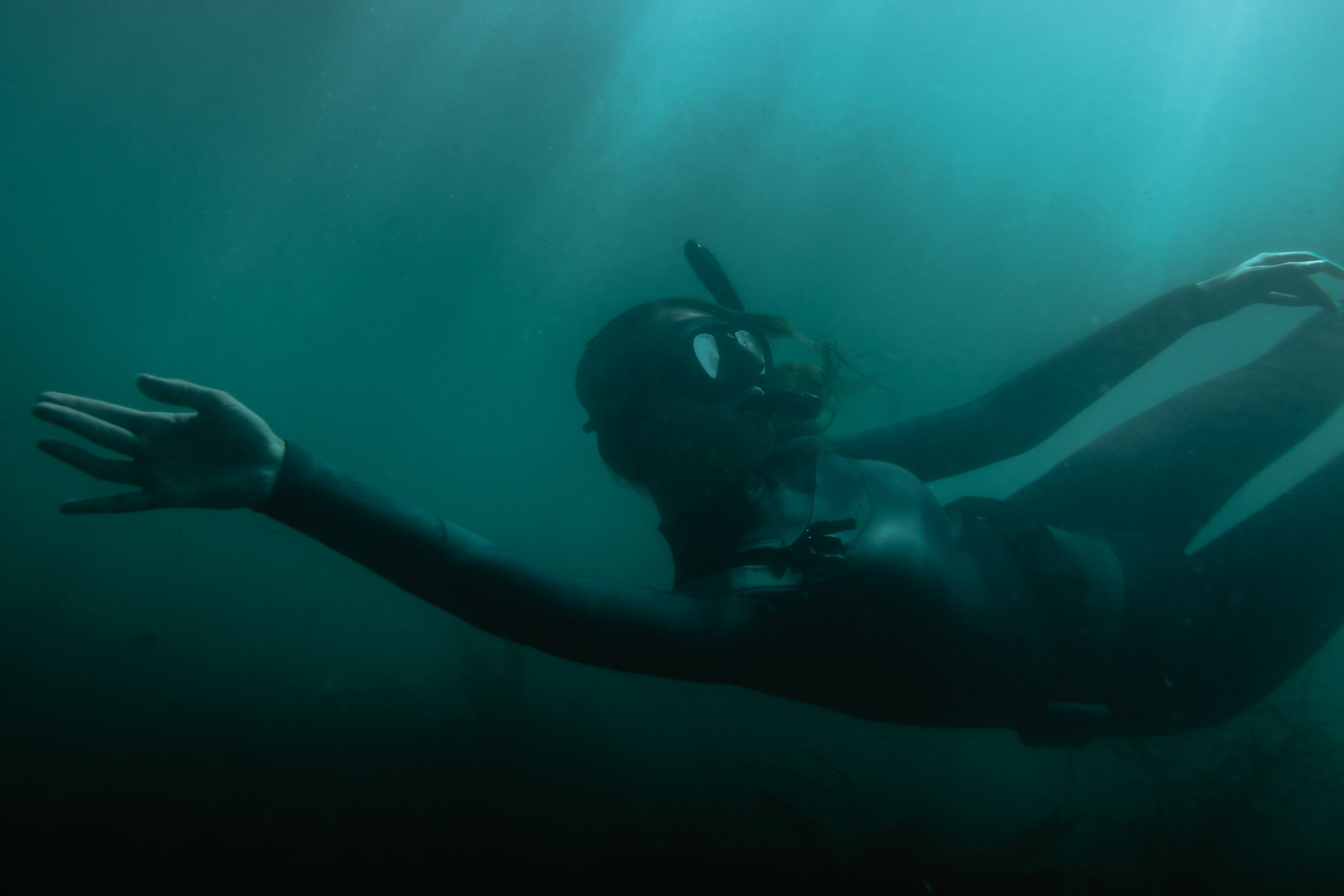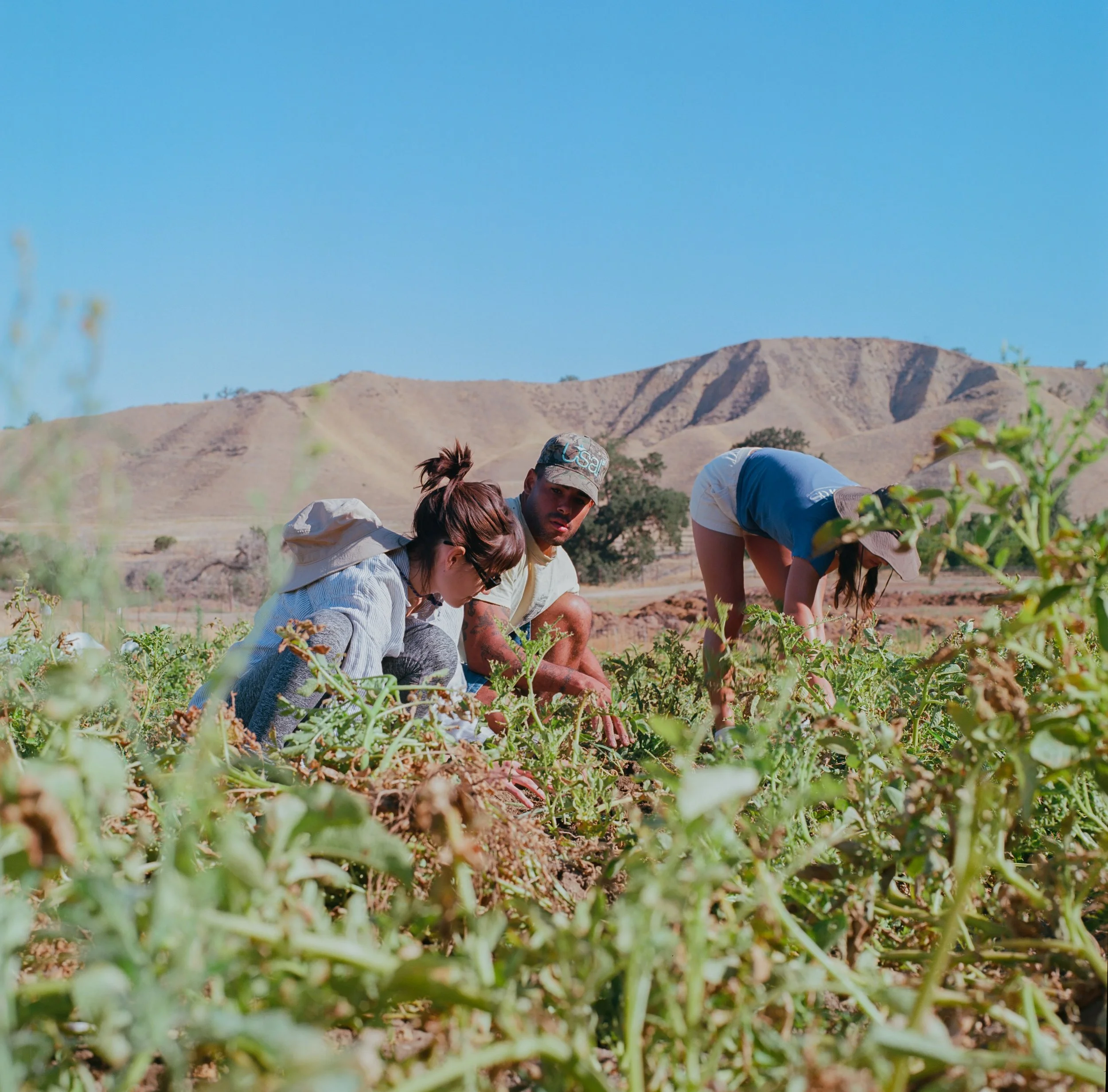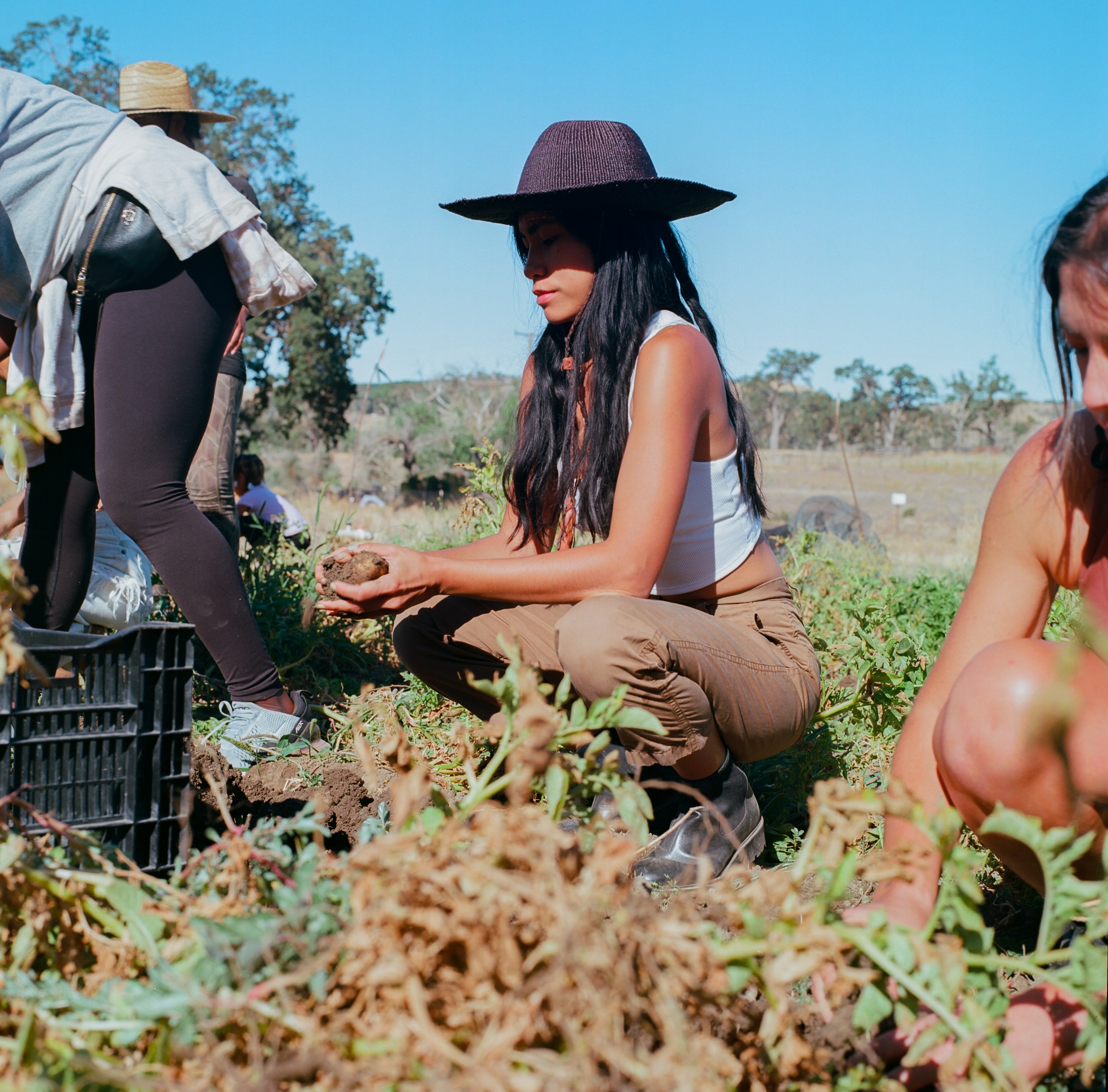Get in the Van: Michael Washington
Thank god Michael Washington escaped the music industry by jumping into a camper van.
After spending a handful of years in L.A. making a name for himself in artist development, the Usal founder was yearning to find a life purpose again. He began by spending every weekend taking trips up the California coast or into the Eastern Sierras to spend much-needed time in solitude and doing activities that he used to love doing –– climbing, mountaineering, surfing –– before his job became demanding. As his L.A.-based friends started to see more of his adventures online, he was perplexed by how often they would tell him, 'I could never do that.’
Of course, they could. His new collective and business endeavor proves just that.
Usal is a Los Angeles-based community of guides and nature enthusiasts who are pushing back against the narrative that city slickers don’t know anything about outdoor survival. More often typed as a bustling metropolitan urban sprawl, Los Angeles is a beautiful epicenter for a wide range of activities; an hour away from the ocean, mountains, rivers, and forest, the city offers a realm of possibility beyond the Instagram-favorite hike to the Hollywood sign. Washington and his Usal project highlight the community that can be found outside city limits with their monthly programming of unique events, retreats, and experiences. From foraging to spearfishing, the most important part of the experience is the joy of doing it with everyone else who is doing it for the first time with you.
We chatted with Washington about Usal and what it means to create a safe space for people of all gender, race, and ability to get outdoors and claim their space among the rural, conservative-minded folks who gate-keep nature, the last free thing in the world. If you live in the area, Usal will provide a sneak preview of its brick-and-mortar space in Silverlake on February 26, and will use the space for future monthly gear swaps and social events for people who want to link up and get outside.
Are you from L.A.?
I’m originally from Texas. I grew up in San Antonio and I went to college in Colorado, and then from college I moved to Los Angeles. I think there are definitely reasons that I didn’t really realize that were pushing me in these directions.
What brought you here?
I moved to L.A. purely based on wanting to work in the music industry. Music was my first love, and I wanted to work with artists since high school. I moved to L.A. and quickly found a community here that I felt very excited to be a part of during a time when I felt like music was very exciting. Lately, it’s been less exciting for me, which is why I left, but at the time it was really fun and creative, and I met a lot of great people who brought joy to my life. It just got to the point where the music industry felt less about community, so I had to figure out the next route for me. Actually, a lot of the pillars of Usal resemble the same pillars of why I got into the music industry, so it’s not like I’m doing something overly different. It’s just a new terrain and perspective and one that I find way more fulfilling and more fulfilling for others.
How did your love for the outdoors happen?
Through friends. A guide doesn’t always have to be a teacher or a professor with a degree. The way I learned is by having people in my life who took the time to take me on trips or show me the ropes or tell me what to buy or what safety precautions I should take. I’ve used my personal community to teach me, and that’s no different from what Usal is trying to do.
I think that a lot of the guides who people associate nature experiences with are elders, and there can be this huge age gap when you go to these things. We’re looking to show people that this isn’t always the case, and there are people who are of the same generation and worldview who live in the city and do the same weekly activities but also implement this connective lifestyle into their L.A. lifestyle. You don’t have to choose the city or the boondocks. You can really do that here.
We’re also teaching human connection to nature more than activities. The activities are definitely one thing, but we’re just trying to show people that they can integrate these things easily into their lives.
When you escaped from L.A., where did you go and who were you with?
I was by myself or with a significant other and living in L.A., which is very perfectly positioned between a lot of different landscapes. You can be in the mountains in the hour or an hour to the ocean or an hour and be in the desert or a river or a lake. The choice is yours. I usually go north, so anywhere between Big Sur to S.F. to Santa Cruz to Lost Coast or all the way to Oregon. On the inside, up to Mammoth or the Eastern Sierras or Yosemite. I’ve been to a lot of places.
How did the idea for Usal begin?
I didn’t realize how much of a role the outdoors and experiencing nature played in my life until recently. I didn't realize how important it was to me until I stopped and slowed down. I mean, I’ve had camper vans since college. I had one here that was an eject button for if I ever needed to get out of the bustle of L.A. As soon as things shut down [from the pandemic], it wasn’t even a question: I just turned to the outdoors as much as I possibly could, and for the first time, I started to share that story a little more publicly through social media because it gave me a lot of joy and helped with mental health.
But I started to also realize that a lot of people would reach out to me and would give me praise and say, ‘I wish I could do that’ or ‘I could never do that.’ These are friends of mine or friends of friends who are from the same area and have the same means and time as me. I realized that, for whatever reason, I was on one side of the fence and a lot of people felt like they were on the other. There was a barrier to where I was for whatever reason. That was where the dawn of Usal came to fruition. What are the reasons? Why are people on this side, and what makes them feel this way? Was it a lack of representation with the people in the outdoor space? No place to turn if you do want to learn? No real sense of community in their city that is offering these things?
So Usal was the answer. It’s still in incubation, but I was figuring out what it really is and how to start answering those problems. People need a community and the need to feel represented and access to education that doesn't make them feel lesser than or contrived. Usal needs to be fun and feel produced as any event should.
You bring up representation. Can you expand on that?
Easily: if you’re not white and male, you're not going to feel very comfortable outdoors. There are so many reasons for that. It's very easy to understand why it's that way, too: if you didn't grow up with money or if you grew up in the inner city, you’re not going to grow up around an activity like fly fishing. Those are things that are passed down from family to family; there’s a generational reason for why [outdoors people] remain the same.
And for women, it can be scary to be alone in the outdoors for many reasons. This is why we are trying to build community, our community happens to skew toward women. Being an outdoor adventure company, that's really rare. I think that’s because our classes are all about teaching people the intro levels to things. Women have never had the opportunity to learn a lot of these things, like an intro to fly fishing. But of course, they want to. Whereas for guys, it’s more in their cultural code to fish or do these things.
A lot of this also has to do with where the amazing nature is, which is a lot of rural conservative areas, which can be scary for a person of color. I myself don’t go anywhere but the trail. I’m not going to stop at the local diner and say hi. Feeling comfortable and confident on the trail goes back to learning it the right way. A lot of times with bigots or people who perpetuate that vibe, they’re going to hang their hat on one thing: they are city folk and they don’t know what they’re doing, and that’s why I’m going to be protective and essentially be mean.
With Usal, I want people to learn to do things the right and safe way together so that when you are in these places alone, you can feel comfortable and confident with what you are doing. We’re trying to arm our community with the education and the confidence to go into these places where they are expected not to know what they're doing and change the narrative.
How’d you figure out what classes to start with?
It was a lot of stuff that I wanted to learn. I wanted to learn how to forage but couldn't find anything. Why aren't these things more widely available? It often comes down to two places: REI, where it’s really, really intense, and a lot of people don't fit into the mold of an intense REI person, and then there’s Airbnb Experiences, which is five steps down.
Again it’s less about the activity and more about helping people learn to invite these types of things into their lives on a human level. If you could join a fishing trip on TripAdvisor, the guy is just going to be there to teach you to catch as many fish as possible. He’s not going to tell you his story, he’s not going to tell you why he loves fishing or why he eats sustainably; he doesn't care. He’s trying to get a check. That’s our difference. We’re doing these classes in a way where people want to do it again for themselves… for the joy, not the outcome.
Is there a class that has been a surprise for you?
We did a tide pool research trip near Morro Bay in San Luis Obispo which was a dream. We were led by this young marine biologist who was the most stoked human ever. Energy was insane. He studies tidepools for a living, so we just go to hang out and watch the sunset while looking for squid and octopus. It was cool. Those are things that you don't see anywhere else. Sure, you can get surf lessons and group climbing events, but things that really excite me are the things you don’t see much of. Things like this are what makes Usal unique.
Say I am coming into an Usal surf class and I don’t know anything, so I am nervous. What does that day look like for that person?
Showing up is the first step. It’s not really about the surf class; we’re helping people learn how to be around people they've never met. A lot of anxiety comes from people who are scared to introduce themselves. So the first step is booking and showing up. Then surfing becomes fun and easy when you realize that everyone else who is there is not judging you, is on the same playing field, and is here to have fun. You are just making new friends and connecting with others that got you out of your comfort zone. That is part of the lesson as well.
What classes don’t work for Usal?
Well, we’re not in the wellness space. A lot of times, nature gets into wellness, like sound baths. I don’t know if that’s our lane in the sense that our community is more about connection to nature through activity and not necessarily through spiritual revelations or reflection. Sure, we do breathwork, so it’s not that we don’t [do wellness], but there are already so many offerings for those. What makes Usal different is that we’re a more unique middle ground between spirit and physical.
What’s happening for you guys in 2023?
Besides our February 26 gear swap, we do a lot of collabs. We’ll keep doing 20 to 25 events a month, at least two camp trips each month, and then a lot more collaborations with other organizations and brands where we can take what we do and grow.



